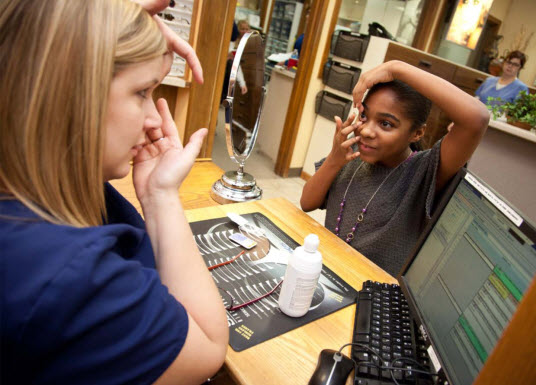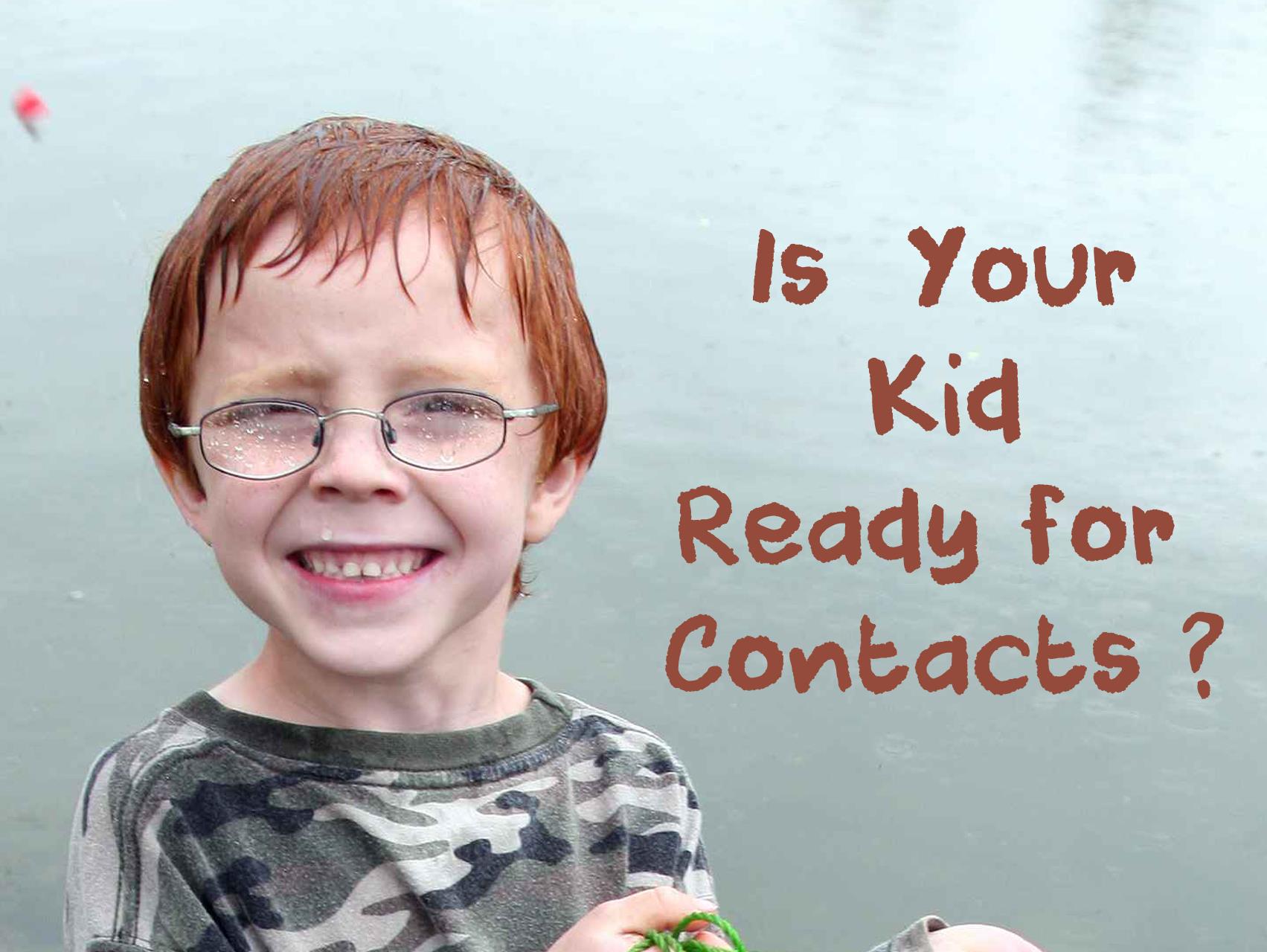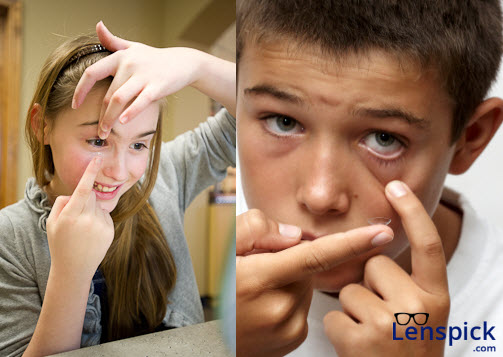It’s always said that contact lenses require extra care and are not as comfortable as should be. Keeping the fact aside that it’s not always true, you might have also heard that contact lenses are only for adults or teenagers because kids cannot handle them. Today we’re going to bust that myth. Contrary to popular belief, it’s very safe even for kids as young as 8 years old to wear contact lenses. In fact, in some cases, even infants are fitted with specially made contact lenses, to help them with certain congenital eye defects.

The most important factors to consider before you take the decision to get contact lenses for your child is whether they’re mature and responsible enough to use them properly, and whether they’re really required. Of course, even if you do decide to get contacts, you have to keep a pair of glasses ready as well, because your kid will not be able to wear contacts all the time.
So when do you consider getting contact lenses? It’s pretty simple. If your child actively participates in sports, contact lenses might be a good bet. Since there’s no question of glasses breaking, fogging up or being riddled with perspiration, it inevitably also raises their performance. Perhaps more important is the fact that peripheral vision and vision while moving around is much better with contact lenses. Also, there’s no risk of glasses breaking and causing eye injury, so that’s another factor to consider.
Finally, and perhaps the most important is your child’s self-esteem. A lot of children feel ‘different’ or ‘inferior’ when they wear glasses. Since most of their friends don’t have them, they might somehow think that the glasses make them stand out from the crowd. It might affect their participation and schoolwork as well, so in such cases, contact lenses are a definite option. You don’t want your child to feel left out just because you didn’t consider getting him or her contact lenses, do you?
Statistically, it has been seen that children who have switched from prescription eyeglasses to contact lenses show significantly better participation in social activities and feel much better about their appearance, and thus, themselves. This also holds true for teenagers. It makes a lot of sense, because we know that during those phases of our lives, it is very important to fit in and be a part of a group.
Now, let’s get to the nitty-gritty of contact lens selection and usage. For kids, it’s recommended to get soft gel or gas permeable lenses so that they can be easily maintained, and don’t cause any discomfort. Research has shown that 90% of kids between the ages of 8-11 had absolutely no problem in handling and caring for contact lenses with adult supervision, so as long as you take an active role in helping them out with their routine maintenance, everything should be perfectly alright.
Kids are also known to be averse to wearing eyeglasses all the time because they might be uncomfortable or simply because they don’t like how they look in them. For some kids, if glasses aren’t used all the time, it could lead to worse problems later on in life. If they are fitted with contact lenses, this problem is completely eliminated because there’s no question of removing and putting in contact lenses multiple times during the day. They probably wouldn’t even consider it, because properly selected contact lenses will very comfortable and offer perfect vision, so what’s there not to like?
Before you consider all this though, make sure that you take your kids to an optometrist or ophthalmologist to see if he or she requires corrective lenses and if the degree is high enough to warrant constant wear. If they don’t require wearing glasses all the time, there probably isn’t a need to get contact lenses either. Only if there’s a pressing need to wear glasses all the time, you can consider getting contact lenses instead, since they’re an alternative to wearing glasses throughout the day.
Daily use lenses are your best bet for kids, since there’s the least amount of hassle involved, because there’s no need for overnight cleaning and disinfection. There’s no harm in getting other types too of course, as long as your doctor prescribes them, and your child can handle them. One last thing, don’t try to push contacts onto your child. If he or she is happy with wearing glasses, let it be. Just because you have contacts doesn’t mean that they might want them as well. Just see what they want!
So go ahead and get your kid a pair of contact lenses, daily use ones, of course, so they can freely play and have fun without worrying about breaking their glasses. If your kid maintains high levels of hygiene and is aware of how contact lenses are different from regular glasses, he or she can definitely pull off wearing contacts with no problems at all, with your help of course!
Image Credits: advancedeyehospital.com, qadriopticals.com, leceonline.com



